- Home
- Michael White
Jack Pendragon - 02 - Borgia Ring Page 18
Jack Pendragon - 02 - Borgia Ring Read online
Page 18
‘Well done, Sergeant,’ Pendragon said, pulling his jacket from the back of his chair. ‘Get back to the search for the golden slippers. I’ll see you later.’
Jack was descending the steps from the station to the car park when his mobile rang.
‘DCI Pendragon?’
‘Yes.’
‘It’s Professor Stokes here. Remember, I came to see you the other day?’
‘Yes, of course,’ he replied.
‘I was wondering, Inspector. You couldn’t drop by, could you? I’ve managed to get some good images of the ring we discussed. I have … well, I’ve started to put together a hypothesis about it. You might be interested.’
‘How soon can you see me, Professor?’
‘Well … um … I’m free now. I have a lecture at two-thirty, but …’
‘Perfect. I’ll be with you in ten minutes.’
The archaeology department of Queen Mary College occupied a row of prefabs on the edge of the campus, so tucked away it would have been understandable if only the handful of students reading archaeology knew of its existence. Pendragon consulted the campus map at the main entrance to the college but failed to find his destination. He only managed to weave his way through the warren of buildings and pathways after seeking help from Main Reception. Even then, he managed to get lost twice and arrived fifteen minutes late.
‘DCI Pendragon,’ Professor Stokes said, hand extended as a young woman in a white lab coat showed Jack into the archaeologist’s cramped little office. It was a dark, stuffy room, the only natural light coming from a small, single window half-obscured by piles of books. Stokes’s desk took up the whole of one wall, and laden bookshelves covered two other walls. On the carpeted floor stood shaky towers of books and papers. ‘I’m afraid there’s not much room. Come with me. The lab is far more accommodating.’
They walked along a corridor lined with pictures of fossils and archaeological digs and turned left into a brightly lit, whitewashed room, the very antithesis of the professor’s little box of an office.
‘I know we’re largely ignored here and have to put up with pre-war temporary buildings which the rest of Queen Mary hardly know exist,’ Stokes admitted. ‘But in here we have some state-of-the-art equipment you wouldn’t find anywhere else outside MIT or Oxbridge.’ He led the way across the room to a counter containing a bewildering array of electronic devices and monitors. It reminded Pendragon of something he had seen on Star Trek when he was flicking through channels a few years back.
‘As you’ll appreciate, Chief Inspector, ours is a job of two halves. Part of the time we have our heads down holes in the ground; the rest of the time we’re using this sort of equipment. Of course, our detractors on the grants committee claim we have our heads somewhere entirely different most of the time, but what do they know?’ He smiled at Pendragon. ‘So, when we’re not being Indiana Jones, we sit in here studying what we’ve dug up from those holes in the ground.’ He pointed towards the box of tricks on the counter. ‘This is a multi-faceted system incorporating several independent analytical processors all hooked up to a rather sophisticated computer system. We use it to study artefacts such as coins or pieces of pottery. We can determine the chemical composition of the artefact with a spectroscopic analyser, and study the ultra-fine structure of an object with the scanning electron microscope … here.’ He pointed to a large box with two rubber-clad cylinders emerging from the top. It was similar to the equipment Pendragon had seen earlier that day at the forensics lab.
‘Obviously, this stuff isn’t much use with just a photograph to work with. But this …’ and the professor patted another black box hooked up to a flat-screen monitor ‘… has come in very useful.’
‘What is it?’ Pendragon asked.
‘It’s a picture-enhancement system that can re-pixellate damaged or fuzzy images. But, most importantly, it can convert two-dimensional images into three-D.’
‘Professor,’ Pendragon said. ‘I’m no technophile – in fact, I could never get my DVD player to work – but, correct me if I’m wrong, doesn’t that sort of software come with most modern laptops?’
‘No, Chief Inspector, you’re not entirely wrong. But it’s a question of degree. You can buy a picture-enhancement package on the high street very cheaply, but this machine is a thousand times more sophisticated than the most expensive domestic system. Look, I’ll show you what I mean.’
He sat down at the counter and tapped on a keyboard. ‘This,’ he said, leaning back in the chair, ‘is the print you gave me of the ring on the skeleton’s finger. Pictures taken from mobile phones aren’t great at the best of times, but this is actually a particularly poor example. You can see the gold band and the large green stone on top, and that’s about it.
‘Now, I’ll trim the image and apply a set of filters.’ His fingers ran over the keys and the image changed. ‘This is better,’ he said. And it was. The ring filled the screen now and some of the fuzziness had gone, but it was still out of focus, over-exposed, and striped with shadow across half the top surface. ‘A domestic software package would not be able to do much better, but I can pass this image under a scanning electron microscope. This takes the pixels one by one and passes them through a programme we developed ourselves called Illuminate – it rebuilds the image having disposed of “noise” and “interference”. When we do that, we get this.’
On screen the image was transformed through a slow vertical wash starting at the top and moving down. When it was complete, the ring could be seen with amazing clarity, every chip, groove and irregularity, in superb colour and with remarkable sharpness.
‘Good Lord!’ Pendragon exclaimed, and peered more closely at the monitor. ‘That really is something.’
‘Not finished yet,’ Stokes said coolly. Without even looking at the image, he tapped in new instructions. The picture on the flat screen disappeared. A horizontal line appeared at the top of the screen and moved down as it had before. Behind the moving line, a new image began to take shape, gradually filling the screen.
‘Much better, wouldn’t you agree?’ Stokes said proudly, and looked up at Pendragon. On the screen was a 3-D image of the ring that looked so real it was easy to imagine you could reach into the monitor and pluck it out.
‘I don’t know what to say,’ Pendragon confessed. ‘The wonders of modern technology never cease to amaze me.’
‘Don’t worry, Chief Inspector. I still find stuff like this exciting and I work with it every day.’
‘So, what do you make of the ring?’
‘Let’s go over here,’ Stokes replied, and stood up. On a table across the room lay a large glossy print of the image from the enhancer. Written on it were a set of numbers and letters. A series of lines had been drawn in black marker across the image.
‘Let’s start at the beginning,’ Stokes said. Pulling up a chair, he motioned to Pendragon to take a seat also. ‘The ring is of gold and emerald. The stone is very high quality. You can tell that from the fact that it’s almost translucent. It’s a very plain design. The only ornamentation is on the band nearest the stone. See there … the gold mouldings? Ridges that slope up to the stone?
‘Of course, it would be so much easier if we had the ring itself to examine because there might well be markings on the inside of the band as well. But, in the event, we have to manage with what we have, and the two most important aspects are the cut of the stone and the design of the setting. The cut of the stone tells us a great deal about the ring’s age.’
‘It does?’
‘The way precious stones are shaped has developed through the ages. The oldest known cuts were simple two-or three-facet cuts, the “point cut” and the “table cut”. Around the late-fourteenth century, the “single cut” was introduced. This produced a flat top with eight facets around the edge of the stone. That’s the way this ring has been shaped. From the mid-sixteenth century, master jewellers found new techniques which allowed them to cut gemstones with up to forty-eight facet
s. Quite remarkable considering the equipment at their disposal.’
‘So this ring must have been made between the late-fourteenth and mid-sixteenth centuries?’
‘Yes. But with the caveat, of course, that it could have been later because a jeweller may have wanted to produce a retro-style of ring. But that’s where the design of the ring comes in.’
‘How so?’
‘This is a classic example of a bishop ring.’
‘Which is?’
‘As the name would suggest. Originally it was a ring given to bishops when they were appointed. They’re still made today, but their significance has been greatly devalued. You can buy them on-line for fifty pounds, fake gemstones and all. But, in centuries past, the bishop ring was a precious and rare thing. This is the real deal. Now, look closely. Do you see a faint mark on the band close to the stone?’
Pendragon peered at the print. ‘A very faint mark.’
‘Here, try with this.’ Stokes handed Pendragon a magnifying glass. ‘Even with the enhancement software at our disposal, this is still hard to see.’
Pendragon moved the magnifying glass until it was focused on the point Stokes was indicating. He lowered the glass. ‘A bull?’
‘Indeed.’
‘So what does that mean?’
‘The bull is the symbol used by the Borgias. It appears in their family crest.’
‘So, you’re suggesting this was once owned by Pope Alexander VI, the Borgia Pope?’ Pendragon said.
‘Well, that’s unclear, and it might not fit with the dates. This ring is definitely Italian. You can tell by those gold mouldings I pointed out. As for the date, it’s most likely to be late-fourteenth or early-fifteenth century. Alexander VI was the most well-known Borgia Pope, father to Cesare and Lucrezia – the whole lot of them infamous. But Alexander’s uncle, Alfonso, became Pope a generation before him, in 1455. And he was made bishop in 1429.’
‘So you think this was the ring presented to Alfonso when he was made bishop?’
‘It’s a strong possibility. It would then have been handed down through the Borgia family so probably did end up in the hands of Pope Alexander or his children, Cesare and Lucrezia.’
‘Well, this is all fascinating, Professor. But I don’t think it helps much with my investigation.’
Professor Stokes nodded. ‘No, I quite understand. As I said just now, if only I had something more tangible to work with.’ He leaned back and rubbed his chin. ‘I saw the news about the skeleton on TV last night. I imagine your forensics people at the lab in Lambeth are analysing it?’
‘That’s correct,’ said Pendragon. ‘Why?’
‘I was just thinking … I have the greatest respect for that lab, it’s probably the best in the world, but you’ve seen for yourself what we can do here. Is there any chance you could persuade them to loan me the ring finger? Or even just the proximal phalanx, the bone the ring rested on?’
Pendragon raised an eyebrow.
‘No, I know. I’m being silly,’ Stokes said quickly.
‘Well, you know what, Professor? I’m a great believer in the old adage that two heads are better than one. I’ll see what I can do.’
London, March 1589
There was barely room to move in the priest hole, and I was not best pleased by my proximity to Anthony who was not the most cleanly of creatures. We could hear voices, screams and shouts from the other side of the panel, and I tried not to think about what would be happening inside the chapel. I knew the powers of the Pursuivants, men employed by Walsingham to flush out seditionists and pollutants. They could arrest and restrain Catholics, but could only use their weapons in self-defence. Although it pained me to recall the fact, Sebastian had run at them. I could only hope that none of the others in the congregation met such a fate and that some might have escaped somehow.
Anthony was in a distraught state. ‘My Lady Ann,’ he whimpered pathetically. Then, turning to me, ‘Those devils,’ he hissed, spittle flying from his mouth.
‘Anthony, I understand your fears, but we must go.’
‘Go where? Hither and thither?’
‘Do you remember that Sebastian and I were meant to meet the Perch brothers? You know something of my task?’
‘Sebastian? I don’t like him. He is rude to my lady. But she bested him. Ha ha!’
I felt the pain of loss again as Anthony spoke of my dear friend. Vomit rose in my throat, and I suddenly realised how stiflingly hot it was in the priest hole. ‘Do you know a way out of here?’ I asked, forcing Anthony to meet my eyes. For a moment, his own seemed unusually lucid.
‘I do,’ he said. ‘Yes. I do. Come.’
He squeezed past me and his body odour hit me anew, causing a fresh spasm of nausea. Anthony leaned into a narrow gap at the back of the priest hole and it gave way. Sliding through, he disappeared into darkness. I took a step forward and squeezed after him.
On the other side, I found myself in a damp, narrow tunnel. It stank of cold earth and mould. I felt the touch of a hand on my arm and jumped back, cracking my head on the roof.
‘This way,’ said Anthony’s voice.
The only light in the tunnel was a slender chink of hazy white, straight ahead. We walked towards it. Our boots crunched on whatever lay on the floor. I did not like to ponder this further and urged Anthony on. The light grew brighter and we soon found ourselves at the end of the tunnel, staring at a wall. It was wet and slimy, but there were small recesses in the stone, just large enough to accommodate clamped fingers, the toes of a boot. At the top I could see a hatch door pivoted upwards. Again, Anthony led the way, ascending the wall with the agility of an ape from distant lands. I took it a little slower and with considerably more trepidation. As I approached the last few toeholds, Anthony had reached our objective. He leaned back into the shaft and helped me out.
The hatch opened on to a small room. A single, tiny window set high on one wall was the source of the light we had seen in the tunnel. The room was empty save for an old wooden crate in one corner. Cobwebs hung from the ceiling and there was green mould around the walls at waist-height. As I emerged into the room, I noticed a closed door to my right. I walked over to it, put my ear to a narrow crack where the door met the frame and listened intently. I could hear nothing. I tried the door which opened outwards.
We were in a narrow lane. Snowflakes fell on my face and I felt the biting wind funnelled by the buildings to either side of the lane. Two paces ahead stood a brick wall. I looked to my left. The lane plunged into darkness. To my right, I could see a well-lit thoroughfare. A cart filled with people passed by. They were all merry, passing around a flagon of some sort. One of them, a cheap whore by the look of her, wearing a low-cut bodice, her hair loose and long, screamed with laughter and fell back against the rail of the cart, legs shamelessly akimbo.
I turned to Anthony. ‘Which way now? You can take me to the Perch brothers, as you said?’
‘I don’t like them,’ he said, refusing to meet my eye.
‘You need not speak to them, Anthony. Just take me to them.’
‘They will eat your head, Father.’
I gave him a gentle smile and placed one hand on his shoulder. ‘Do not fear for me, Anthony. I must find the brothers. My mission here is of the utmost importance. It is the Lord’s wish that I find the Perch brothers and seek their assistance. Do you understand?’
He nodded slowly. ‘Yes, I understand, Father John,’ he said. ‘Our mission.’ He straightened his back. ‘I will do the Lord’s bidding. Yes, I will. I will. The brothers will be at the theatre. Yes, that’s where they’ll be.’
‘The theatre?’
‘The Eagle. Yes, the Eagle Theatre. It’s all a game, you see. My Lady Ann told me. People pretend to be other people. They sing songs there and dress up. It is very merry.’ He looked at me, eyes ablaze with sudden excitement. Then, without another word, he headed for the main road at the end of the lane.
I stopped him. ‘Your robe.’
He looked down at his white vestment and pulled it over his head obediently.
We could not have been more than one hundred feet from the subterranean chapel and the horrors we had just witnessed there, but as Anthony led us into the milling crowds I felt safer than at any time since we had arrived in London. I pulled my scarf over my face to add a layer of disguise and kept my head down. We were in a large square. A market dominated one half of it, with stallholders selling a bewildering array of goods. There were fish counters and stalls piled high with apples and chestnuts. Beside these I saw a counter lined with rows of wooden toys: spinning tops and brightly painted soldiers. Another stallholder was hawking wooden beads, and a few feet from him a trader was loudly beseeching prospective customers to feel the quality of the silk he had laid out on a rickety table.
We moved past the stalls quickly, avoiding eye contact with anyone, and ducked down another alley. It was powdered with untouched snow that glinted in the moonlight. Sensing that this was a hostile place, I encouraged Anthony to break into a trot before anyone could leap out on us and slit our throats.
We were soon in another busy thoroughfare. This time, though, everyone seemed to be moving in one direction – towards the river. We merged with the throng. We took a sharp turn to our left and I could see the theatre directly ahead of us. It reared up out of the shabby dwelling houses surrounding it, with the silver Thames immediately behind.
I had seen the Eagle Theatre from the north bank of the river when I’d lived in this city five years before, but even though play houses such as this were immensely popular with Londoners of all types and classes, I had never been tempted inside one myself. The Puritans, of course, hated any form of mummery; it was all part of their dour, restrictive outlook on life. And yet I, too, did not feel very comfortable with the new craze for the theatre. It seemed to me that there were more profitable paths to pursue in life. Instead of pretending to be someone other than himself, it might befit a man more to improve that which he was. But even for one so sceptical about the theatre, my first glimpse of the Eagle at such close quarters quickened my blood.

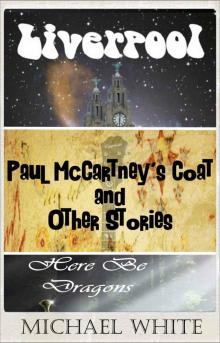 Paul McCartney's Coat
Paul McCartney's Coat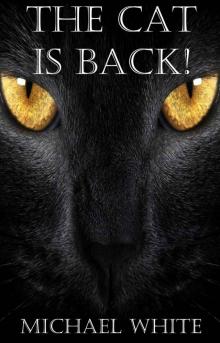 The Cat Is Back!
The Cat Is Back!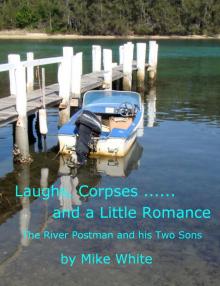 Laughs, Corpses... and a Little Romance
Laughs, Corpses... and a Little Romance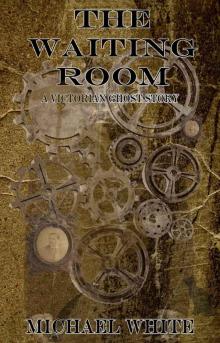 The Waiting Room
The Waiting Room Into the Light- Lost in Translation
Into the Light- Lost in Translation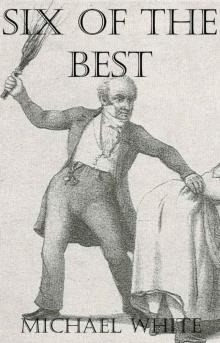 Six of the Best
Six of the Best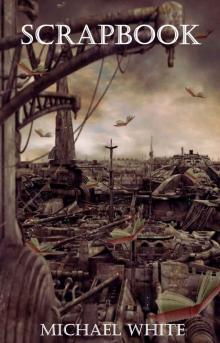 Scrapbook
Scrapbook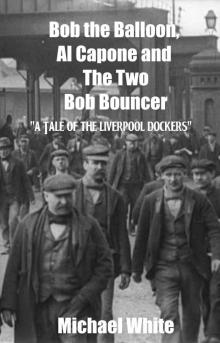 Bob the Balloon, Al Capone and the Two Bob Bouncer
Bob the Balloon, Al Capone and the Two Bob Bouncer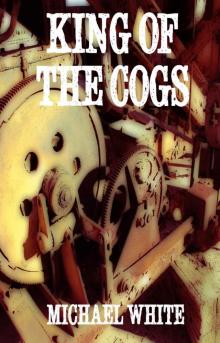 The King of the Cogs
The King of the Cogs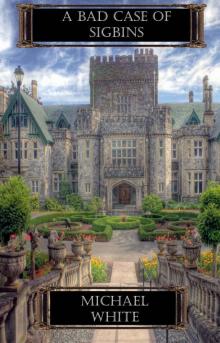 A Bad Case of Sigbins
A Bad Case of Sigbins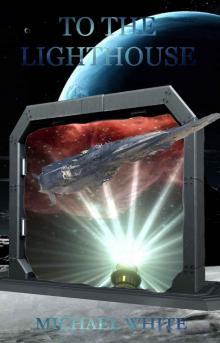 To the Lighthouse
To the Lighthouse Overboard!
Overboard!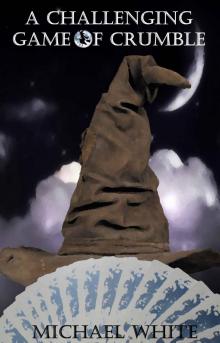 A Challenging Game of Crumble
A Challenging Game of Crumble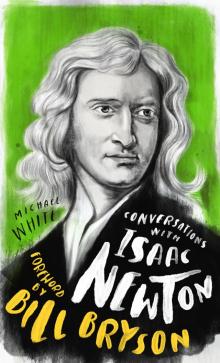 Conversations With Isaac Newton
Conversations With Isaac Newton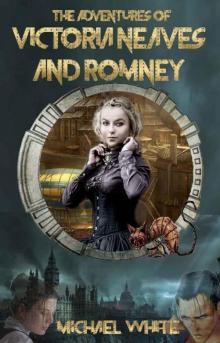 The Complete Adventures of Victoria Neaves & Romney
The Complete Adventures of Victoria Neaves & Romney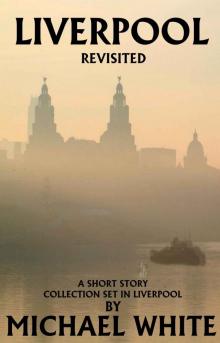 Liverpool Revisited
Liverpool Revisited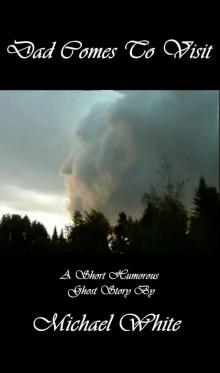 Dad Comes to Visit
Dad Comes to Visit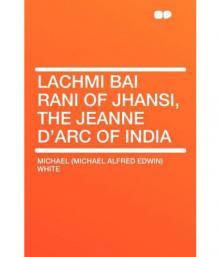 Lachmi Bai, Rani of Jhansi: The Jeanne D'Arc of India
Lachmi Bai, Rani of Jhansi: The Jeanne D'Arc of India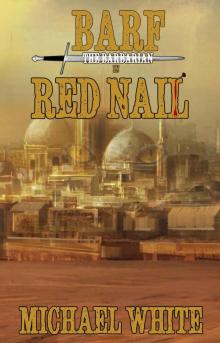 Barf the Barbarian in Red Nail (The Chronicles of Barf the Barbarian Book 2)
Barf the Barbarian in Red Nail (The Chronicles of Barf the Barbarian Book 2)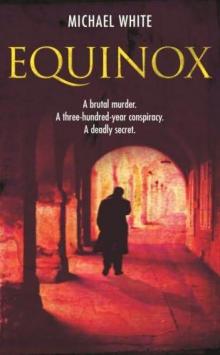 Equinox
Equinox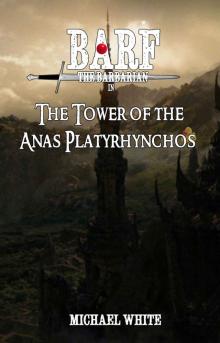 Barf the Barbarian in The Tower of the Anas Platyrhynchos (The Chronicles of Barf the Barbarian Book 1)
Barf the Barbarian in The Tower of the Anas Platyrhynchos (The Chronicles of Barf the Barbarian Book 1)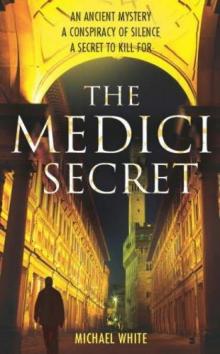 The Medici secret
The Medici secret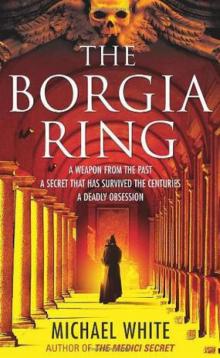 Jack Pendragon - 02 - Borgia Ring
Jack Pendragon - 02 - Borgia Ring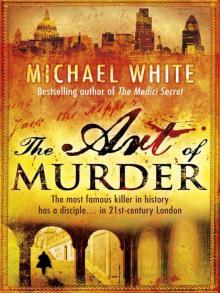 The Art of Murder jp-3
The Art of Murder jp-3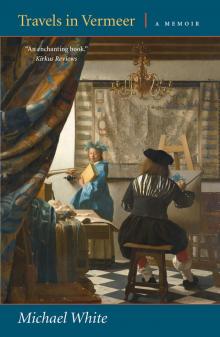 Travels in Vermeer
Travels in Vermeer